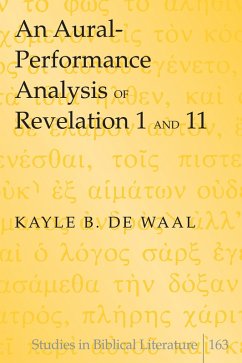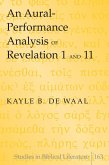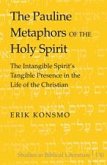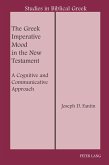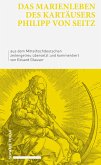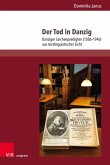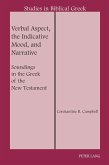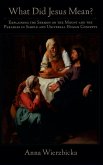Dieser Download kann aus rechtlichen Gründen nur mit Rechnungsadresse in A, B, BG, CY, CZ, D, DK, EW, E, FIN, F, GR, HR, H, IRL, I, LT, L, LR, M, NL, PL, P, R, S, SLO, SK ausgeliefert werden.
(David Rhoads, Emeritus Professor of New Testament, Lutheran School of Theology at Chicago)
«In this stimulating and important work, Kayle de Waal articulates a new methodology for interpreting the Apocalypse of John, focusing not on its abstract meaning but rather on its social implications for group identity and direction. At the heart of this new methodology is a serious consideration of the oral media culture of Roman Asia Minor. Fully conversant with contemporary scholarship, de Waal guides us through a careful analysis of Revelation 1 and 11, exploring the rhetoric, oral patterning, sound mapping, performance theory, and the implications of auditory neuroscience. The discussion is clear, precise, and easily understood. You will not always agree with his interpretation, but you will always benefit from the conversation. Highly recommended.»
(David L. Barr, Professor Emeritus, Wright State University, Dayton, Ohio)

